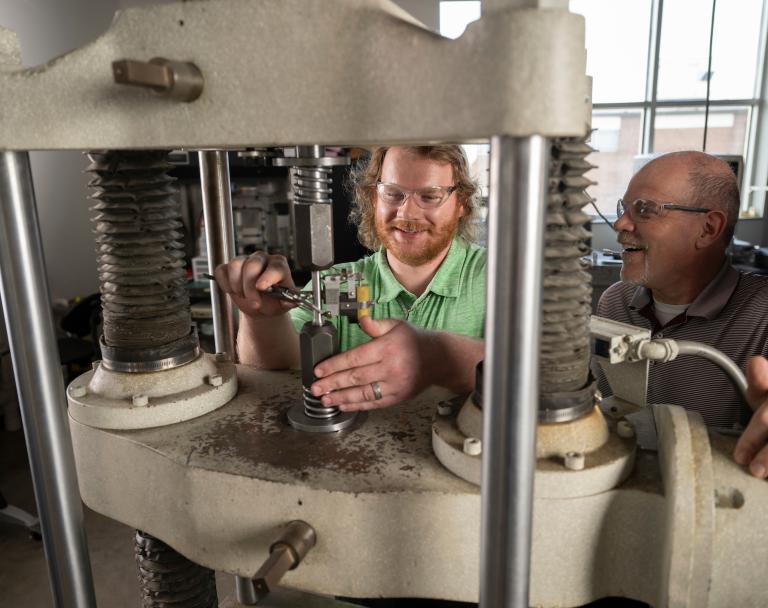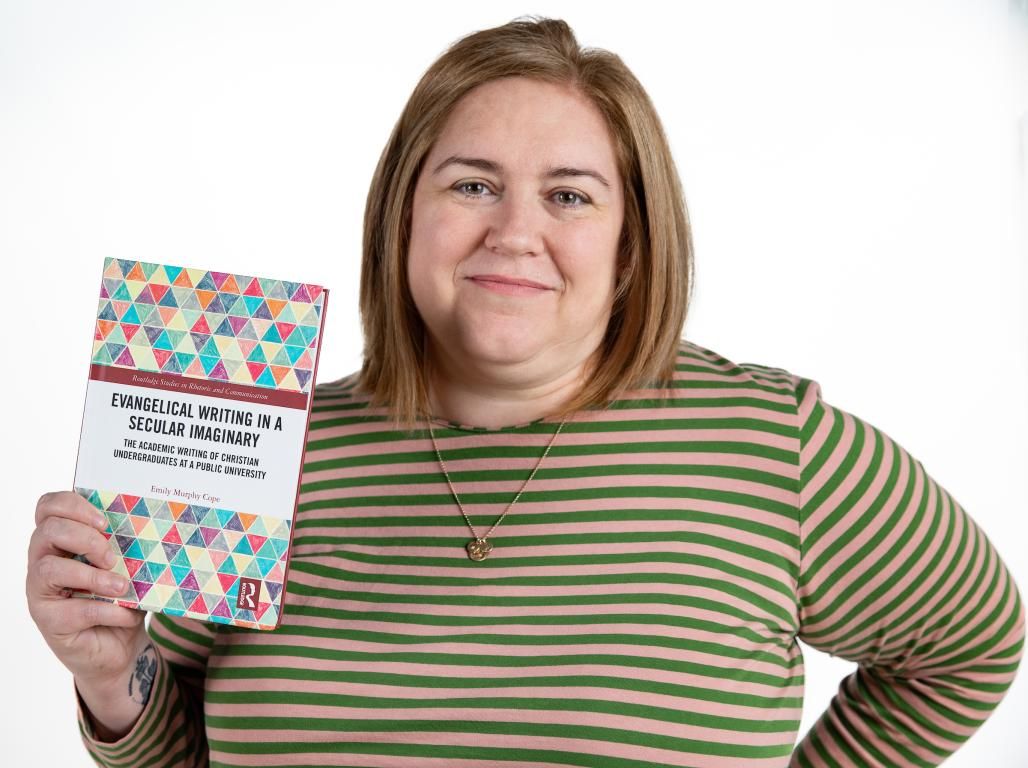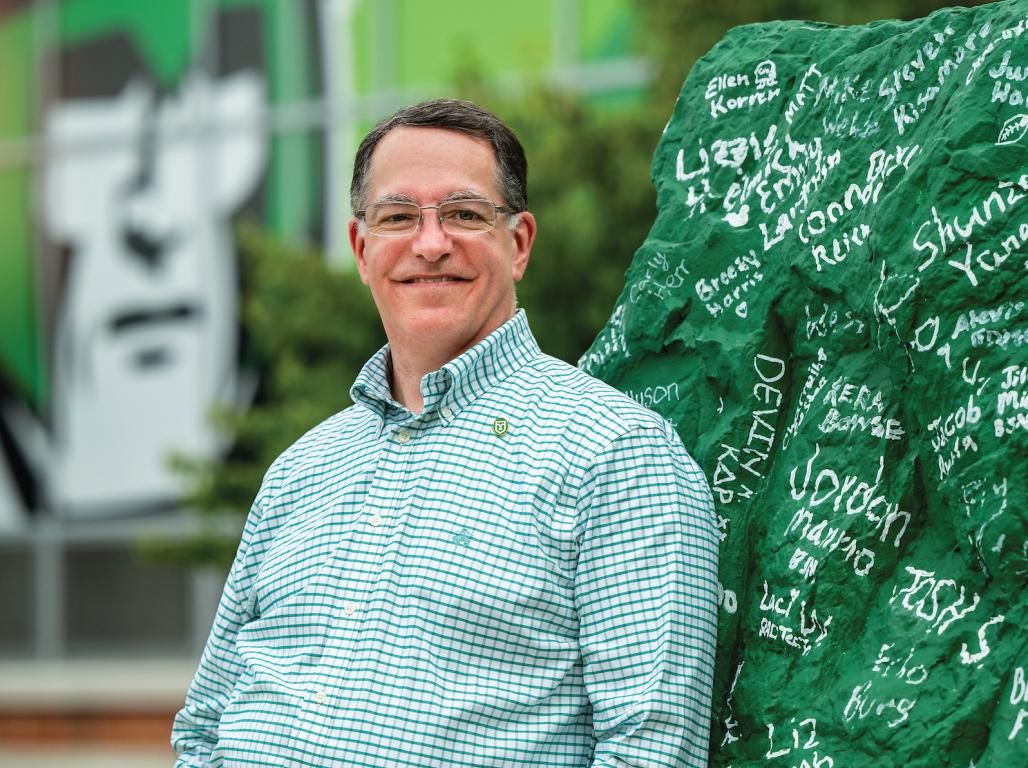
In this series, faculty tell us what compels them to teach, and why they teach at York College.
York College is a teaching institution, committed to serving the evolving educational needs of students. Faculty focus on their work in the classroom, making connections with and engaging students through high-impact practices and innovation.
Steve Kuchnicki, Ph.D., Professor of Mechanical Engineering and Chair of the Civil and Mechanical Engineering Department, has been teaching at York College for nearly 16 years.
I’ve been teaching at York College for about 16 years now. You might think that would make me a little bored with all of this. Same classes, similar students, really nothing new to be seen.
If you thought that, you’d be wrong. I still get nervous before the first day of class—every semester, every time. Why? I don’t quite know what to expect. Every class and every group of students brings its own new excitement.
Then, what’s special about teaching, and teaching at York College? It’s the little things—the small moments that you don’t think of when you sign on for a teaching job. You think, maybe, of how a class will go. You have an idea of an organized, easy back-and-forth between you and your students. You don’t think of the silences (the sound of students thinking!), or of the times a student comment or question takes the class off the rails for a few minutes. But those moments are important, and they are the ones that help to make up a class and a career. Life is all about these small moments, really.
Speaking of moments, let’s imagine one. Maybe we’ve got one student, maybe it’s several. Most likely, it was one student and then a group gathered when they heard me starting to talk about a concept or a problem. (I’m kind of loud when I get into my teaching voice.) The meat of the story is pretty common—we’re in my office, or it’s right after class, or we’ve taken over a whiteboard at the front of the Kinsley Engineering Center and there’s a concept that they just aren’t seeing.
Until they do. The students’ expressions change. Shoulders “unslump.” Eyes brighten. That’s it–the “aha” moment. Everything’s clicked, and the students have gone from confused to something they’ll always own. It’s a powerful moment, and it’s my favorite reason to teach at York College.
There’s more, too. I imagine if you ask my students what I’m known for, somewhere high on that list is “breaking things.” A hallmark of our Engineering programs is our laboratory experience, and I have taught labs every year I’ve been here—sometimes two in a semester! I get to watch students run some pretty big machines and then have that first reaction when a half-inch-thick piece of steel breaks. (It’s pretty loud, and some students are more surprised than others!) It’s a unique moment—people don’t typically think of a half-inch-thick piece of steel as a stretchy, breakable thing. But it is, and there’s that moment of understanding that comes from watching it happen.
Another thing we get to do is make things. Breaking and making go together, really. If you understand how a material breaks, you can design a device to avoid that failure better. I get to see students engage with their projects—from the day I unveil the current year’s Machine Design project to them all the way through fabricating and demonstrating a final working prototype. While students love projects, they don’t always understand what it takes to make one successfully. There are a lot of little “aha” moments there, whether it is how to apply a particular concept to make sure your device lasts (nearly) forever, or just the best way to set up stock material in a mill to cut a part the fastest.
There are other little moments in there, too, and they often have nothing to do with classes. Maybe a student has an interview for a co-op job they want to talk about, or maybe they’re juggling offers. Sometimes it’s not quite so happy—maybe a student is struggling or is at a difficult time in life. And that’s where teaching at York is also different. I’ve told students, both current and prospective, that there is no “wall” here between faculty and students. Sure, they call me “Dr. Kuchnicki” or “Dr. K” (seriously, why not?), but aside from that formality, there isn’t a barrier. Students stop by whenever—office hours or not—and they start talking. That’s when I start listening and offering some guidance through whatever moment they may be having.
Being a resource for my students is a rewarding part of what I do. Life isn’t all about the equations or the concepts. There needs to be a whole person behind all of that work in order for it to go right. So, if one day I’m putting a problem on a whiteboard for a student to solve and the next day I am offering a tissue from the box on my desk, that’s fine. Those are important moments, too, and moments I get to share with my students.
It's funny, then. I’ve gone through this entire post about why I enjoy teaching at York College, and I’ve barely mentioned the classroom. I think that’s part of the joy. Some of my best and most memorable classes aren’t the ones that went according to plan. They are the ones that went a little sideways in the middle. That’s okay. The students get a laugh, their minds reset, and we get back on the train, so to speak.
Fact is, though, I can have these off-the-rail moments with my students because we’re at a place like York. I’ve taught at a large state school with a lecture hall of 150 students. It might as well be a stage show. It’s all one direction. At York, the size of the class makes it possible to have a conversation about what we’re doing. I think that makes my students better in the end.
That relationship continues after graduation, too. I’ve given plenty of speeches to engineering graduation ceremonies. Every time, I compare our programs to a family. There’s nothing better than having alumni from five, ten years ago stop by to hire students or call me. It’s catching up with an old friend, and there’s nothing else like it.




